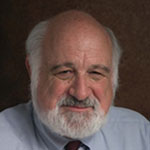非常抱歉,
你要访问的页面不存在,
非常抱歉,
你要访问的页面不存在,
非常抱歉,
你要访问的页面不存在,
验证码:

职称:Professor of Biological Sciences and Biomedical Engineering
所属学校:University of Southern California
所属院系:Computer Science
所属专业:Computer Science
联系方式:(213) 740-9220
1963, Phd, Mathematics, Massachusetts Institute of Technology 1963, Phd, Other Health Professions, Massachusetts Institute of Technology 1961, Bachelors, Other Health Professions, University of Sydney 1961, Other, Pure Mathematics, University of Sydney
Michael A. Arbib is the Fletcher Jones Professor of Computer Science, as well as a Professor of Biological Sciences, Biomedical Engineering, Electrical Engineering, Neuroscience and Psychology at the University of Southern California (USC). As both a theoretical neuroscientist and a computer scientist, Arbib argues that by deducing the brain's operating principles from a computational standpoint we can both learn more about how brains function and also gain tools for building learning machines. Arbib is a prolific author and has written or edited over 30 books and many scientific research articles. His work has been extremely influential in shaping the field of computational neuroscience. Arbib received his Ph.D. in Mathematics from the Massachusetts Institute of Technology in 1963. He was advised by Norbert Wiener, the founder of cybernetics, and Henry P. McKean, Jr. As a student, he also worked with Warren McCulloch, the co-inventor of the artificial neural network and finite-state machine. After a brief postdoc with Rudolf Kalman, Arbib spent five years as an assistant professor at Stanford, before becoming the founding chairman of the Department of Computer and Information Science at the University of Massachusetts Amherst in 1970. He remained in the Department until 1986, when he joined the University of Southern California. With Richard Didday, he developed one of the first winner-take-all neural networks in 1970. More recently, with Giacomo Rizzolatti, the leader of research team that discovered mirror neurons, he proposed an evolutionary link between mirror neurons, imitation, and the evolution of language.